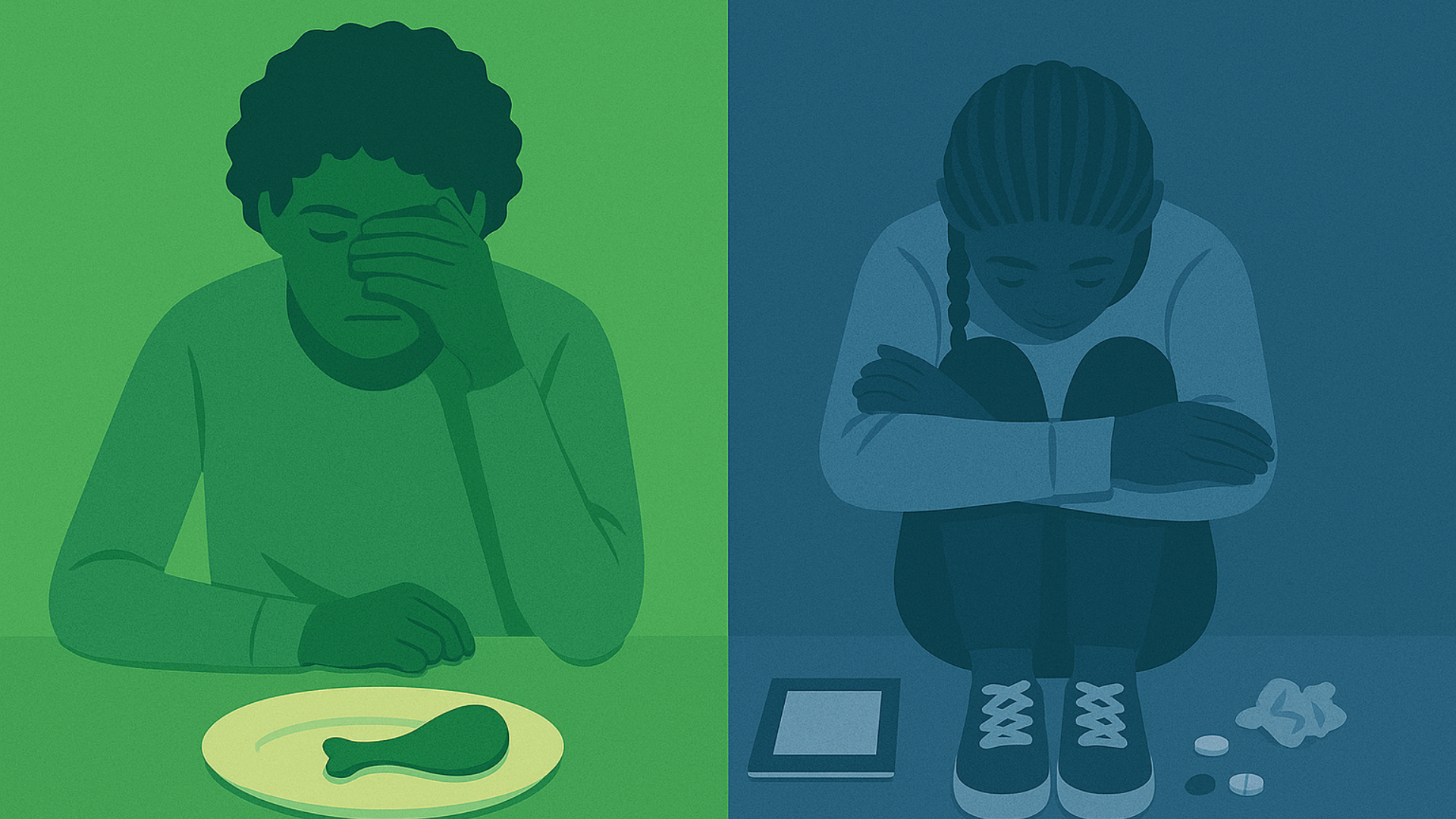Breaking Down the Stigma Surrounding Eating Disorders: Avoidant/Restrictive Food Intake Disorder (ARFID)

The end of February marks National Eating Disorder Awareness (NEDA) Week ! Thrive is acknowledging common myths and misconceptions about various eating disorders in an effort to break down the stigma and raise awareness about eating disorders. This week, we are highlighting Avoidant Restrictive Food Intake Disorder (ARFID). ARFID is most often found in children under the age of 13. Children who suffer from AFRID have difficulty eating due to lack of interest in food, sensory aversions to food, or worry that something bad might happen to them if they eat, like choking, throwing up, or having pains. ARFID is sometimes misunderstood as being similar to anorexia nervosa, but unlike anorexia, ARFID is not due to concerns about weight, self-esteem, or body image.
Picky eating or ARFID?
Picky eating is extremely common in children. How do you know if your child has ARFID or is just a picky eater? Usually, children outgrow their picky eating habits or are able to meet their nutritional needs even if they are picky. But if a child has ARFID, they fail to gain weight, begin to lose weight, and or do not grow as expected. If you find your child’s palette becomes extremely restricted or they seem fearful or stressed in situations surrounding eating, then they may be struggling with AFRID.
The risk factors of ARFID
Because ARFID is a fairly new diagnosis, researchers know much less about what puts someone at risk for developing it. But according to NEDA here’s what we know so far:
-
People with autism spectrum conditions, ADHD, or intellectual disabilities are much more likely to develop ARFID.
-
Children who don’t outgrow normal picky eating appear to be more likely to develop ARFID.
-
Many children with ARFID also have a co-occurring anxiety disorder and are at high risk for other psychiatric disorders.
Let’s play mythbusters
“All kids are picky eaters. My kid will only eat certain things but that’s normal.” FALSE! Some kids are picky eaters but here is what to look for…kids struggling with ARFID often have a fear of eating because they think it can cause them harm or they may not even be interested in food at all.
“They just know what foods they like and stick to them. My kid isn’t an adventurous eater that’s all.” FALSE! Most people with ARFID have a short list of safe foods they will eat because they suffered from a traumatic childhood experience such as choking, feeding issues as an infant, being born with their umbilical cord around their neck, etc.
“My kid is just a little behind on the growth curve, but they are probably just a late bloomer.” FALSE! While there are many reasons a child can be considered a “late bloomer” here’s what to look for to tell if it is ARFID. A big sign that a kid is struggling with ARFID is falling behind on the growth curve, constantly losing weight or not being able to gain weight.
Thrive don’t just survive!
Thrive understands the complex psychological and physical effects that come with an eating disorder. That is why we use a multidisciplinary approach that addresses every part of the client — mind, body, and soul. We can help clients of all ages on their path to recovery by healing their relationship with themselves, their body, and food. Our clinicians specialize in working with young children and helping them overcome mental and physical health challenges like ARFID. Reach out to learn more.








